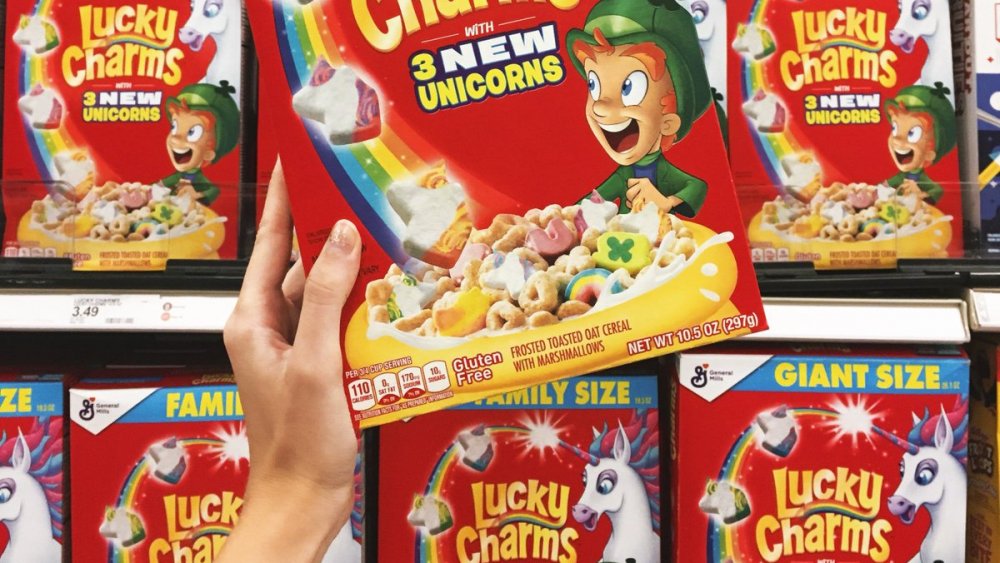The Ingredient You'd Be Surprised Is In Lucky Charms
Pink hearts, yellow moons, orange stars, and green clovers — these are the delightful little marshmallow shapes we're used to finding in a bowl of Lucky Charms. And we all know that Lucky Charms comes with oats, even though there have been plenty of jokes about how no one actually likes this part (per The Onion).
But there's one ingredient in Lucky Charms that you might not expect to find in your breakfast bowl: trisodium phosphate. This inorganic compound also is also found in toilet bowl cleaners (via Eat This, Not That!). So versatile is trisodium phosphate, in fact, that you can even use it to thin or remove paint; a 1-pound box of trisodium phosphate is listed in the Paint Prep & Cleanup section of the Home Depot website.
So should an additive that's used to scour toilets and prepare your walls for a fresh coat of Eggshell actually be part of your nutritious breakfast?
Trisodium phosphate won't harm you in small doses
It turns out that in the food industry, trisodium phosphate is something many processed foods will contain — not just cereal, but cakes, lunchmeat, pizza dough, and more— because it improves texture and extends shelf life (via Healthline). It is safe to consume up to 70 milligrams of trisodium phosphate per day, per the Food and Drug Administration. General Mills, the manufacturer of Lucky Charms, did not reveal the exact measurement in their cereals, but tweeted in 2015, "Trisodium Phosphate is FDA-approved and safe in a wide variety of foods. In cereal, it's a salt that adjusts acidity."
But what if you eat a lot of Lucky Charms? According to Carl Winter, a food toxicologist at the University of California, Davis, the amount you're consuming is what's key. "The general first principle of toxicology is that the dose makes the poison," he told Inverse. "Everything is safe at a low enough dose. Anything could be dangerous at a high enough dose." Even though it's extremely unlikely that you're ingesting enough Lucky Charms to poison yourself, some experts do worry that if you're consuming a lot of processed foods, you could be at risk of continuous exposure to trisodium phosphate, which has been linked to bone density and digestive disorders.

